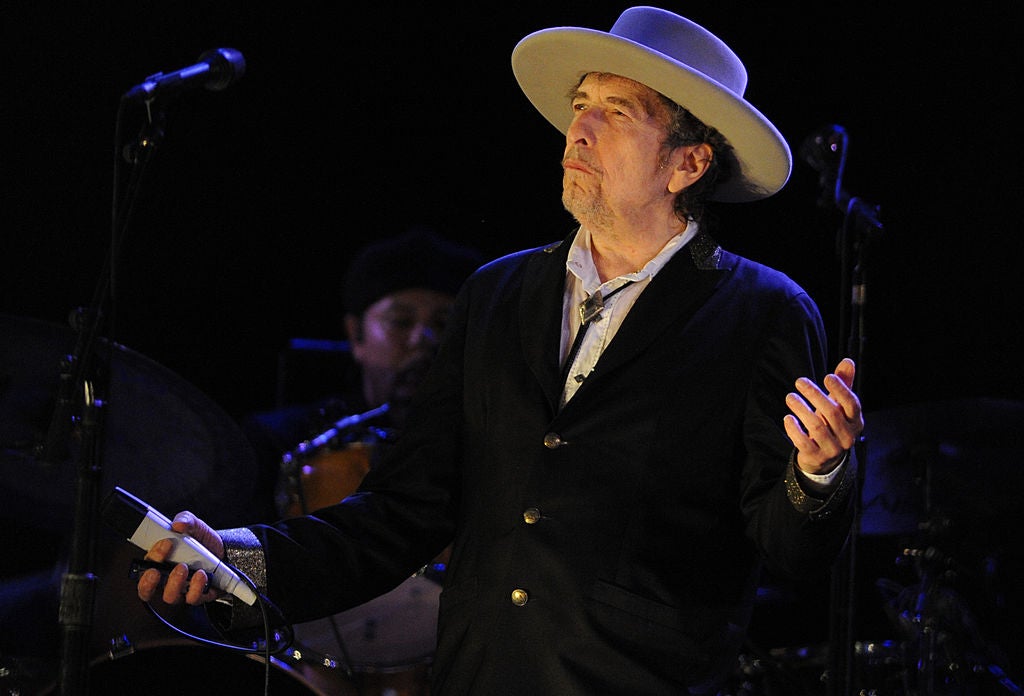Bob Dylan and Stevie Nicks have sold the rights to their music – this is why
The digital technology that once collapsed the industry, is now the very reason the market has recovered, writes Mark Stephens


Last week, Bob Dylan and Universal Music agreed what could be the biggest ever acquisition of music publishing rights of a single songwriter. Dylan, who was in a unique position by modern standards in that he owns the rights to his own songs, has reportedly received around $300m (£225m) from the world’s biggest music company for more than 600 songs that he recorded across a career spanning almost 60 years.
Stevie Nicks has also agreed to sell an 80 per cent stake in her publishing catalogue for $100m to Primary Wave, not long after a viral video on TikTok propelled Fleetwood Mac’s 1977 track “Dreams” back into the charts. Dolly Parton, whose 3,000-song catalogue includes Whitney Houston’s “I Will Always Love You”, has said she is interested in doing the same.
Not all artists are as fond of this new asset class. When accepting her Woman of the Decade award last year, Taylor Swift accused investors of “buying up our music as if it is real estate, as if it’s an app or a shoe line.” Although she has had a long-standing issue with her original management team run by Scooter Braun, Swift, who unlike Dylan doesn’t own the rights to her first six albums, is now in the process of re-recording her entire back catalogue in protest on both fronts.
Yet it is interesting to remember that 20 years ago, as global music revenues peaked at more than $39bn, they would collapse almost overnight after the launch of P2P file sharing site Napster. While Napster, which quickly accrued 80 million illegal subscribers, making it arguably the fastest growing company of all time, would eventually collapse under the weight of legal action, its legacy was lasting. Swedish entrepreneur Daniel Ek was so inspired by the project that he hired Napster founder Sean Parker to assist him with his own project, Spotify.
Now, the Times They Are a-Changin'. With live event cancellation this year fuelling the need for cash flow in the industry, droves of artists are now selling off their rights. A combination of low interest rates and a relatively favourable Capital Gains Tax rate are also contributing factors, but there can be little doubt that it is streaming which is driving this huge boom in valuation.
According to MIDiA research, more than $4bn was spent buying music catalogues last year, a figure that will be easily surpassed this year. Streaming has revolutionised the way we consume music but also how it behaves as an asset. Previously, the majority of record sales would occur in the immediate months after a release, meaning the value of an album always declined in time.
Not anymore. Consumers revisiting their favourite artists and songs, instead, provides a hugely predictable, consistent and recurring cash flow that investors can monitor from royalties grossed in previous years. Streaming provides these investors with both a non-correlated asset and very limited administrative overheads.
And now it’s a buyers’ market. In the era of zero interest rates, these catalogues of evergreen artists have attracted a lot of interest for their consistent yield profile and are backed by an increasingly sophisticated investor base.
Artists aren’t just attracted by the huge pay-outs, but also have concerns about potential control issues. Structures are getting more complex and leaving music rights behind can be an incredibly messy business. The industry has watched the passing of several music legends, such as Prince, Tom Petty and Aretha Franklin, and seen their rights tangled up in hugely complicated and expensive lawsuits. It is incredibly unlikely that Bob Dylan needed to sell his songs. He will have wanted to control who looks after them.
As for streaming sites like Spotify, investors believe this is just the beginning. Almost all artists bemoan its existence, but 2019 represented five straight years of double-digit music revenues. A Goldman Sachs forecast from before the pandemic predicted those revenues would more than double by 2030 to $45 billion.
As more connected and streaming enabled devices reach developing markets, more people will be streaming and listening to music than ever before – but they’ll also be paying less. The digital technology that once collapsed the industry, is now the very reason the market has recovered.
Mark Stephens is the founder and CEO of Blackstar Capital


Join our commenting forum
Join thought-provoking conversations, follow other Independent readers and see their replies
Comments